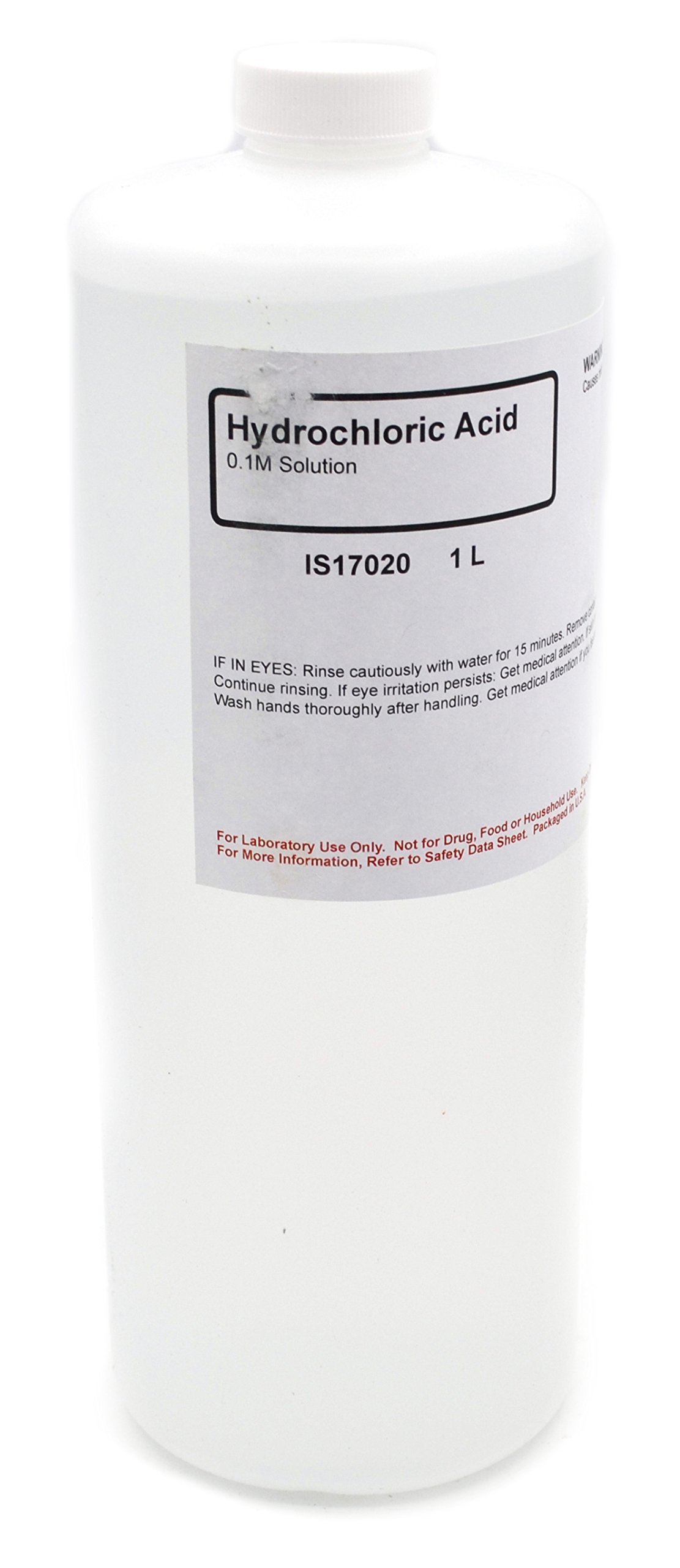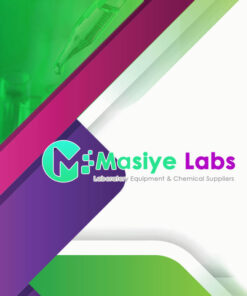Hydrochloric Acid 0.10N
R1,450.35 Ex VAT
Hydrochloric Acid 0.10N in propan-2-ol
Hydrochloric acid (HCl) 0.10N is a standardized solution, meaning it has a precisely known concentration, typically used in laboratories for titrations and other chemical analyses. It is a clear, colorless, and corrosive liquid with a pungent odor. In this concentration, it is considered a strong acid and is often used as a reagent in various chemical reactions and titrations.
Important Considerations: Safety Precautions: When handling hydrochloric acid, it is crucial to wear appropriate personal protective equipment (PPE), such as gloves, goggles, and a lab coat, due to its corrosive nature. Ventilation: Ensure proper ventilation when working with hydrochloric acid as it can release irritating fumes. Storage: Store hydrochloric acid in a cool, dry place, away from incompatible materials and out of reach of children. Disposal: Dispose of hydrochloric acid according to local regulations and guidelines.
• Concentration: 0.10 Normal (0.10N), which is equivalent to 0.10 Molar (0.10M) for HCl since it is a monoprotic acid.
• Appearance: Colorless and clear liquid.
• Corrosivity: Hydrochloric acid is corrosive and can cause severe burns to skin and eyes.
• Pungency: It has a pungent, irritating odor.
• pH: A 0.1N HCl solution has a pH of approximately 1.
• Standardization: The solution is standardized, meaning its concentration is accurately known and traceable.
• Use: Commonly used in titrations, pH adjustments, and as a reagent in various chemical reactions and analyses.
• Concentration: 0.10 Normal (0.10N)
• Appearance: Colorless and clear liquid
• Corrosivity: Hydrochloric acid is corrosive and can cause severe burns to skin and eyes
• Pungency: It has a pungent, irritating odor
• pH: A 0.1N HCl solution has a pH of approximately 1
• Standardization: The solution is standardized, meaning its concentration is accurately known and traceable
• Use: Commonly used in titrations, pH adjustments, and as a reagent in various chemical reactions and analyses
Related products
Standards
Standards
Standards
Standards
Standards
Standards
Standards


